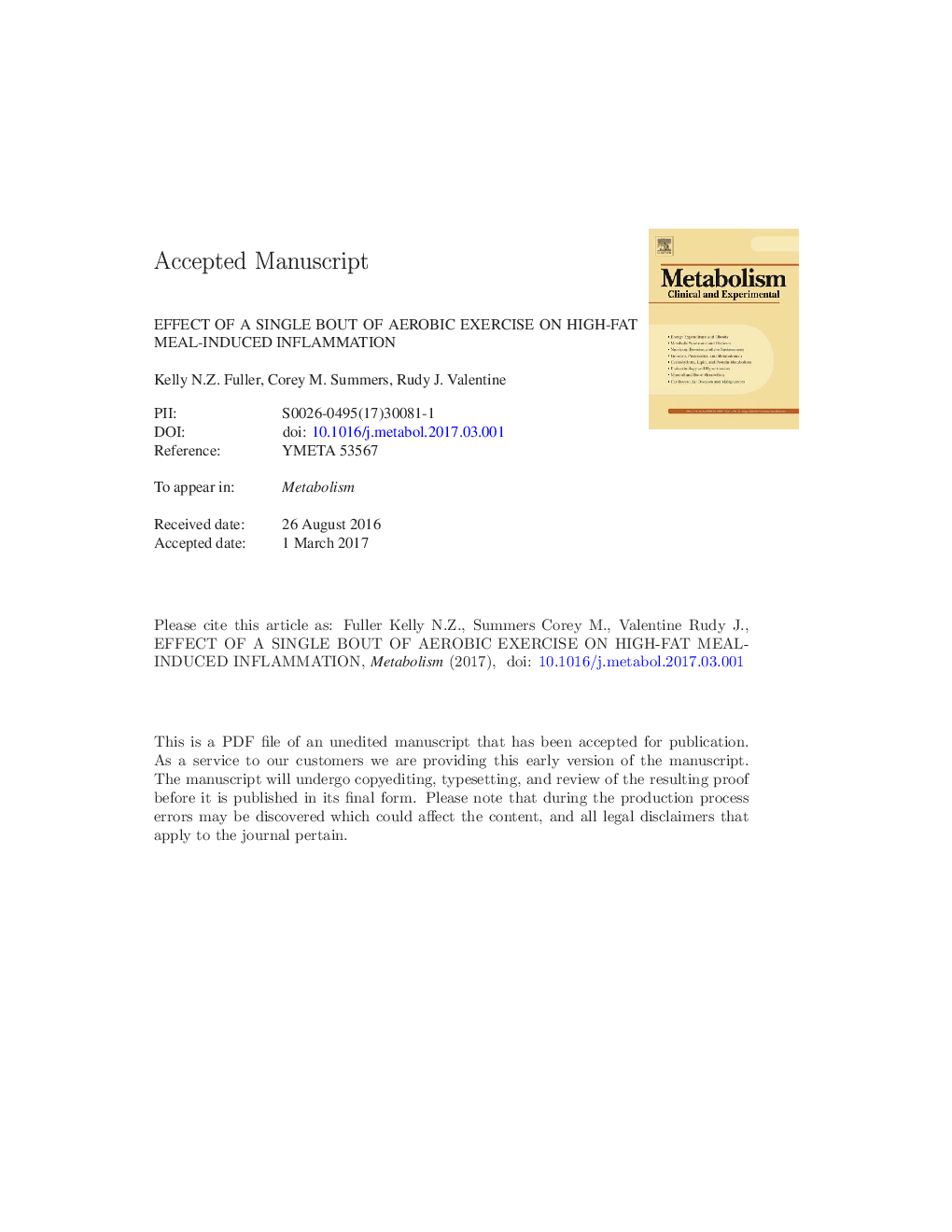| Article ID | Journal | Published Year | Pages | File Type |
|---|---|---|---|---|
| 5588355 | Metabolism | 2017 | 30 Pages |
Abstract
Results indicate that the single bout of moderate aerobic exercise increased AMPK signaling in PBMCs, as shown by increased phosphorylated acetyl-CoA carboxylase (p-ACC). This may be due to decreases in the AMPK inhibitory kinases PKD and GSK3β. Additionally, prior moderate intensity exercise decreased postprandial lipemia (PPL) and some mediators of the inflammatory pathway, such as p-NF-κB. These findings that acute aerobic exercise improves AMPK and NF-κB signaling in human PBMCs contribute support to the anti-inflammatory roles of exercise.
Keywords
TBSTPVDFHDLERKBCAECLp38T2DRFCPBMCsAMPKGSK3βIκBαFFAsBIAVO2 peakPKDPPLHFMTRIS-buffered saline with Tween5-aminoimidazole-4-carboxamide ribonucleotidePBSAICARACCJnkNF-κBSDSAMP activated protein kinaseAMP-activated protein kinaseAUCc-Jun N-terminal kinaseMAPKROSbicinchoninic acid assayacetyl-CoA carboxylaseFree fatty acidsenhanced chemiluminescencecardiovascular diseasebioelectrical impedance analysisanalysis of varianceANOVATriglyceridesPeak oxygen uptakepolyvinylidene difluorideType 2 diabetesCVDsodium dodecyl sulfateperipheral blood mononuclear cellsbody mass indexBMInuclear factor-κBnuclear factor kappa BPhosphate buffered salinephosphorylated Postprandial lipemiaLDLHigh-density lipoproteinslow-density lipoproteinsarea under the curveHigh-fat mealprotein kinase Dmitogen-activated protein kinaseextracellular-signal-regulated kinaseGlycogen synthase kinase 3βReactive oxygen species
Related Topics
Life Sciences
Biochemistry, Genetics and Molecular Biology
Endocrinology
Authors
Kelly N.Z. Fuller, Corey M. Summers, Rudy J. Valentine,
